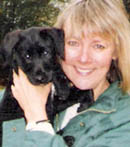I’ve written about Bēķi in my autobiographical book HAPPY GIRL (1997) and have continued writing about Bēķi in my mother’s biography PORTRAIT OF A LATVIAN BEAUTY (2009).
Bēķi Cemetery is where my beloved mother now lies, next to my father and close to my grandparents and great grandparents.
At my age now (God, almost 68!) I often wonder where I myself will find a last resting place.
In just a few months I’ll be leaving Canada. Re-settling in the USA will be quite a wrench but I’m used to it. I’ve been uprooted so many times before. From Latvia to Germany, then to Canada where I never really felt at home and couldn’t wait to get back to Europe—to France, England and finally to post-Soviet Latvia.
Today I came across a photo of my apartment in Bēķi House. My kilim is on the floor, my antique writing table and chairs by the window. I’m filled with emotion—mainly sadness.
It’s not my apartment any more.
Not one tiny piece of Bēķi belongs to me. Not a trace of my ancestor’s legacy is mine.
The vast expanse of Bēķi– the majestic allee of trees leading to the main house, the workers’ cottage, the green fields, the lush forest and the family cemetery now belongs to my brother. It’s all uniquely his. He and his non-Latvian wife are now ‘saimnieks’ and ‘saimniece’.
Is this just?
Interestingly enough, both my brother and his wife are seen here in Ottawa as great advocates of ‘justice’—‘justice’ as a vague abstraction and a legal ideal never attained in real life.
I wonder if this is a unique family feud over heritage.
Latvian society, at least in the past, was patriarchal.
But Bēķi was my mother’s inheritance, passed on to her by her mother.
The link from grandmother to mother to daughter has now been broken. Will it ever be repaired?
Who will safeguard my ancestral home?
Will it be sold to the highest bidder?
( I will post in “comments” stories some of my readers and friends have kindly shared with me. )



